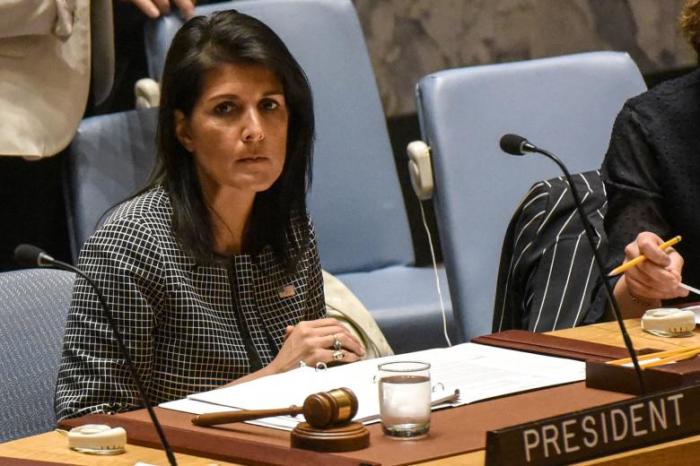US Withdrawing From UN Human Rights Council 'Cesspool;' Christian Watchdog Warns of Consequences

The United States government has announced through Nikki Haley, its ambassador to the United Nations, that it is withdrawing from the latter's Human Rights Council body, calling it a "cesspool of bias" that fails to advocate for human rights.
Christian Solidarity Worldwide, a persecution watchdog group, has warned that the move will not advance the battle against religious persecution around the world, however.
"Human rights abusers continue to serve on, and be elected to, the council," Haley said Tuesday, as reported by CNN.
"The world's most inhumane regimes continue to escape its scrutiny, and the council continues politicizing scapegoating of countries with positive human rights records in an attempt to distract from the abusers in its ranks."
"For too long," she added, "the Human Rights Council has been a protector of human rights abusers, and a cesspool of political bias."
Vice President Mike Pence suggested on Tuesday in a Tweet that a big part in the decision was the Council's bias against Israel and favoratism toward Palestinian protesters in Gaza.
While pro-Palestine politicians have blamed Israel for the deaths of civilians, the United States and Israel have said that militant group Hamas is sparking the protests and driving civilians into dangerous situations.
"Today the U.S. took a stand against some of the world's worst human rights violators by withdrawing from the United Nations Human Rights Council," Pence wrote.
"By elevating and protecting human rights violators and engaging in smear campaigns against democratic nations, the UNHRC makes a mockery of itself, its members, and the mission it was founded on. For years, the UNHRC has engaged in ever more virulent anti-American, and anti-Israel invective and the days of U.S. participation are over."
Stéphane Dujarric, the spokesman for U.N. Secretary-General António Guterres, said that the 47-member state body is disappointed at the move.
"The Secretary-General would have much preferred for the United States to remain in the Human Rights Council," the statement expressed.
"The UN's Human Rights architecture plays a very important role in the promotion and protection of human rights worldwide," it added.
CSW's United Nations Officer Claire Denman also spoke out against the decision.
"CSW regrets the United States' decision to withdraw its membership of the UN HRC. The HRC is the UN's foremost human rights body, which addresses some of the world's worst human rights violations and plays a key role in maintaining accountability among states. While the system is not perfect, it remains the key forum in which to challenge human rights records globally," Denman said.
The watchdog group said that the withdrawal "will neither prompt nor advance efforts to address the HRC's anomalies, but is likely to strengthen the hand of recalcitrant states."
Still, other experts, such as Brett D. Schaefer, the Jay Kingham Fellow in International Regulatory Affairs at The Heritage Foundation's Margaret Thatcher Center for Freedom, defended the announcement.
Schaefer wrote in an op-ed for Fox News that the Council is "deeply flawed, inconsistent, heavily biased against Israel, and plagued by a membership list that includes some of the world's worst human rights violators and dictatorships."
"From the beginning, the Human Rights Council exhibited blatant bias against Israel, included human rights abusers among its membership, and was unable to confront serious human rights abuses in powerful or influential states – the very same flaws that discredited its predecessor, the U.N. Human Rights Commission," he argued.




























